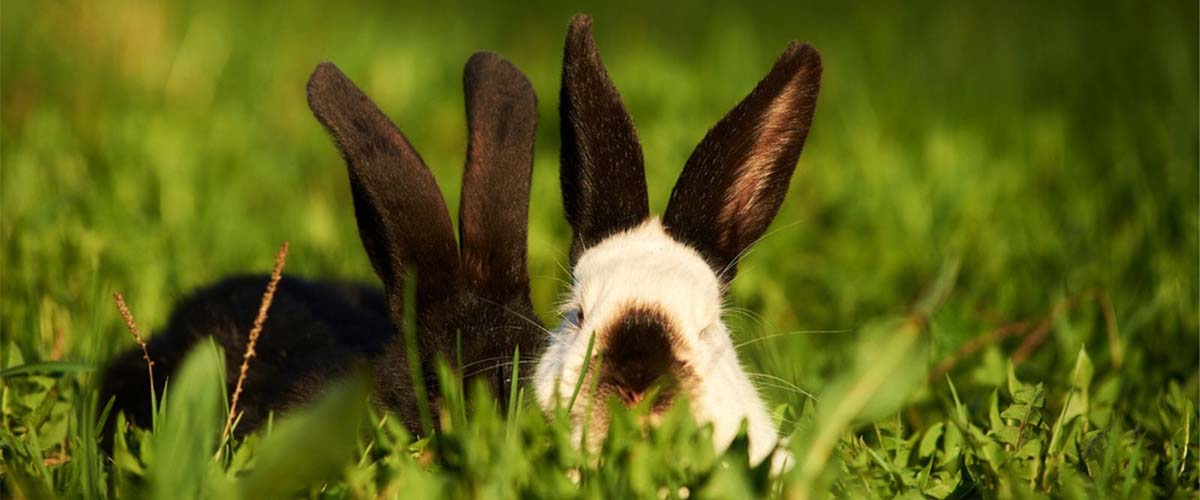Bunny Basics: Keeping your rabbits healthy
We’ve put together our top tips on all the bunny basics to keep your rabbits happy from whiffling nose to tail!
Rabbits can be lots of fun but as many owners know, keeping bunnies happy isn’t always easy. Our bunnies have very complicated needs and despite their popularity rabbits can unintentionally become neglected pets.
The good news is there are lots of simple things you can do to help keep your rabbits healthy, happy and living their best life.
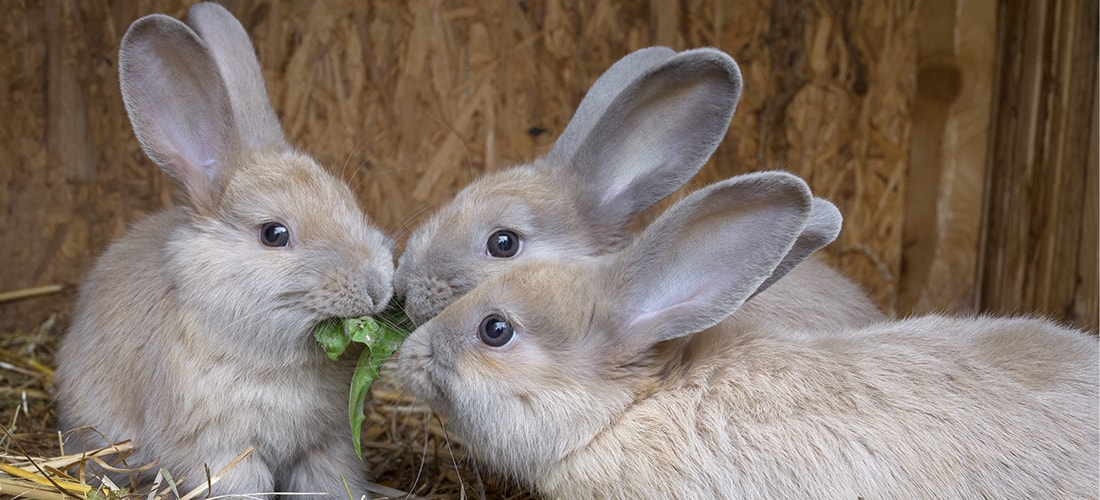
A healthy rabbit’s diet should be as similar as possible to the types of food they would eat in the wild.
Rabbits should ideally be fed:
- At least their own body size in good quality hay each day (so if you put the daily amount of hay next to your rabbits, it should be at least as big as them)
- An adult-sized handful of suitable fresh greens morning and evening
- Just a tablespoon of rabbit nuggets once daily (or twice daily if the rabbits weigh over 3.5kg).
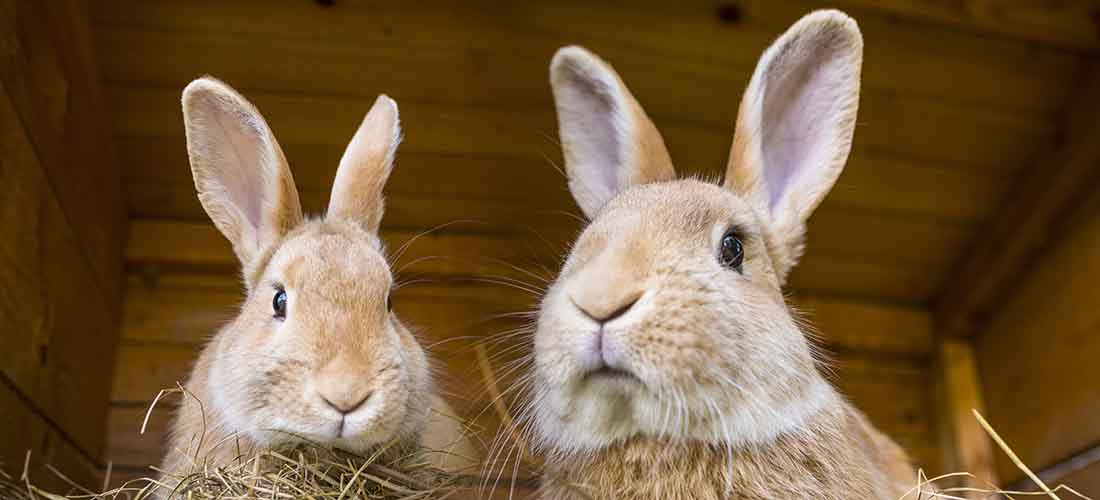
Rabbits are social animals and in the wild they live together in large groups. This offers them warmth, comfort and companionship as well as meaning that they can all watch for possible dangers and predators. All these things reduce their anxiety and stress and so help to keep them happy.
If rabbits are alone, they can feel socially isolated and become bored, frustrated, destructive and anxious. We recommend keeping rabbits in a bonded pair, ideally a neutered male and neutered female, or small group.
Rabbits should never be kept with other species of animal such as guinea pigs. Not only do they have very different needs, they also can’t communicate with each other or provide the social support that they need to stay healthy.
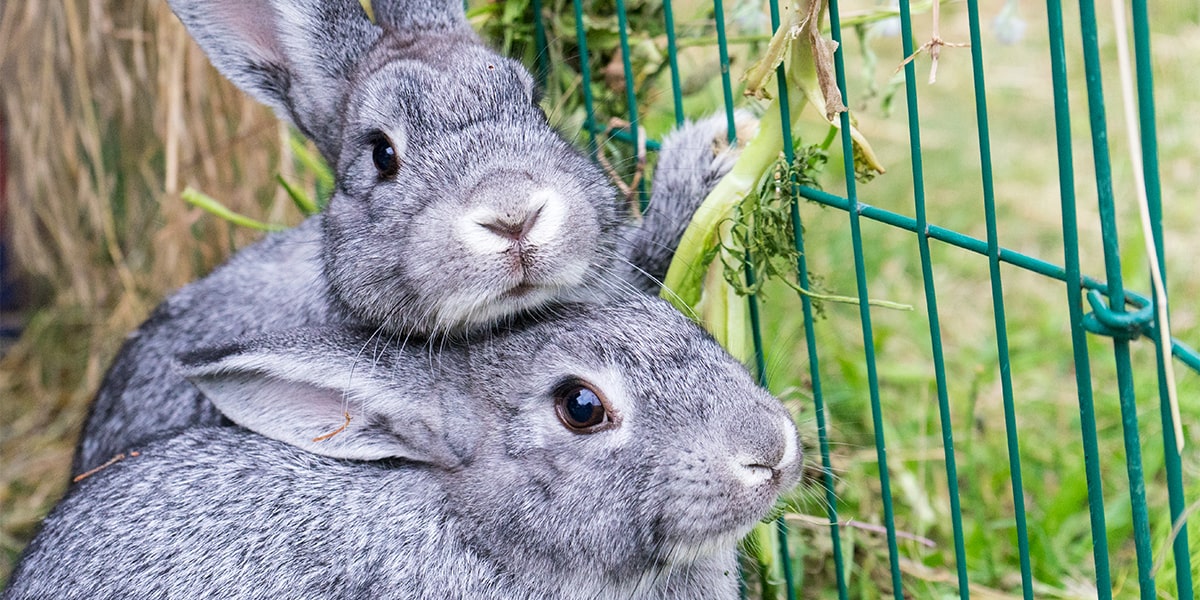
Rabbits are very active and need lots of space to stretch, hop, reach up and run around. When picking a hutch or living area for your rabbits, it’s important to make sure they have plenty of room.
Ideally, your rabbits will need access to an area of at least 3m x 2m x 1m at all times. Sadly we see a lot of tiny hutches for sale and we may be tempted by the pretty colours and designs but many of these are no way near big enough to keep a pair or group of bunnies happy and healthy.
If you keep your rabbits outside, they’ll need shelter from the wind, rain and sun, an area where they can rest and sleep and a large outdoor run where they can hop, dig, play, eat and just be rabbits! You’ll also need to think about making sure they have lots to do with things like tubes, hay bales, cardboard boxes, hay racks that they can stretch and nibble from and even bunny safe plants.
If you choose an indoor set up, you’ll need to make sure your rabbits have plenty of room as well as a safe secure space to eat and sleep. You’ll also need to bunny-proof your home to keep them safe from any hazards, such as wires or house plants.
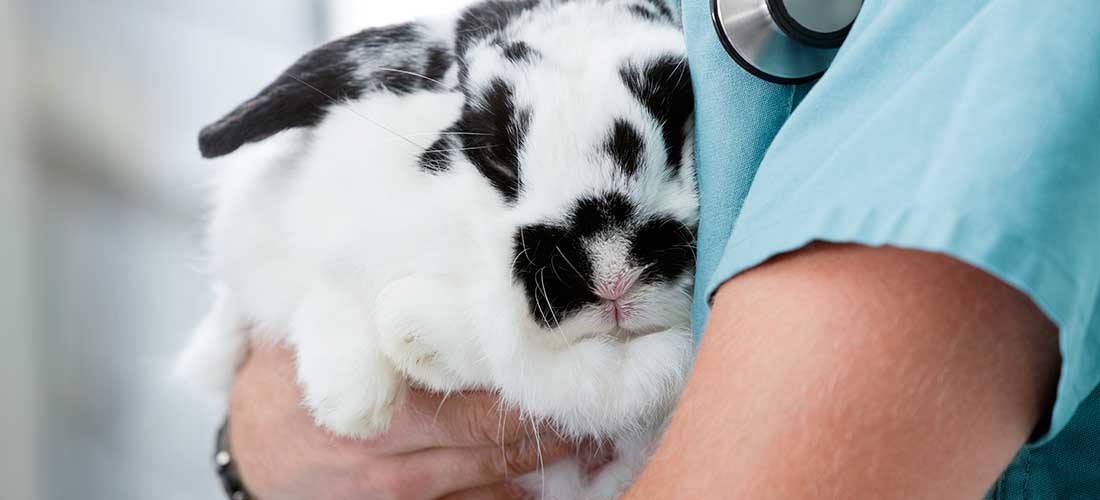
Picking up and handling your rabbits can be tricky, especially if they’re not used to being held. Being handled can be very frightening for a rabbit. They’re a prey species and being picked up in the wild would generally result in them becoming someone’s dinner!
Try to avoid picking up your rabbits where possible, instead come down to their level and let them to choose how and when to spend time with you. Try sitting on the ground near them and giving them some tasty treats - your rabbits are naturally curious and will often want to investigate, sniff and even climb on to you. And this is much more fun for them than being picked up and held.
If you need to pick your rabbits up, for instance for to do a health check, it’s important to take it slowly. At first your rabbits may be very scared of being picked up, so take your time to gradually build and develop their confidence.
Never hold your rabbits on its back. This is terrifying for them! Likewise, you should never pick your bunny up by its scruff or ears as this can be incredibly painful and scary for them.
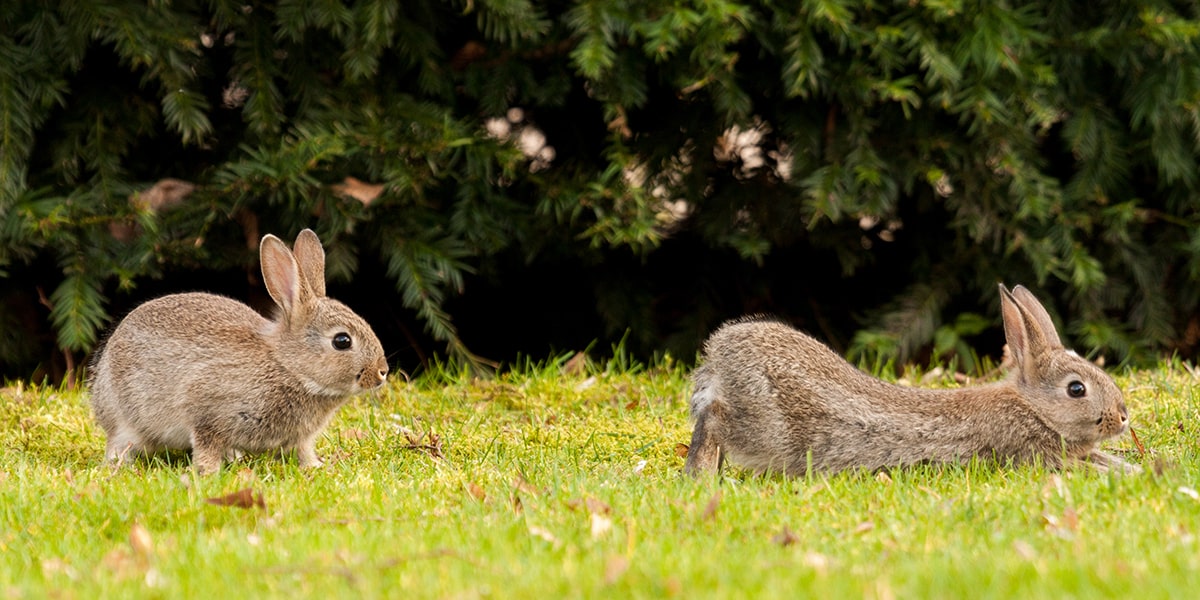
Rabbits have a wide range of different behaviours and ways of communicating, which can be confusing for us as owners and sometimes even cause problems.
Some common behaviours you might notice include running, jumping, sniffing, grooming, digging, chasing, biting, hiding and thumping. It’s not always easy to understand the signals your rabbits are giving you but small changes in behaviour can tell you a lot about how your rabbits are feeling. We have a whole guide which might help you work out what your rabbits are trying to tell you:
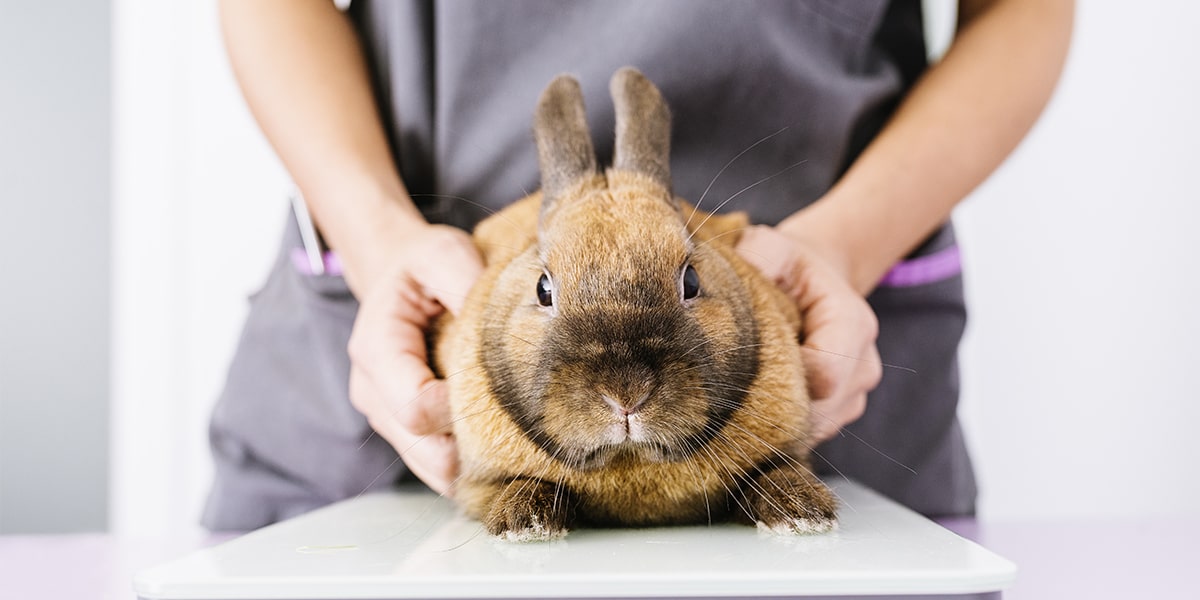
It’s a great idea to give your rabbits a regular health check. Once you get to know your rabbits, you’ll notice if they seem under the weather, are not as active as usual or even if their fur is not quite right, all of which can be an early sign of health problems. If you’re worried about your rabbits' health, contact your vet for advice and help.
Our vets recommend taking these simple steps to help keep your rabbits healthy:
- Register your rabbits with a vet.
- Keep them up to date with their vaccinations each year and make sure they are neutered - this will help to prevent some really serious illnesses and allow them to live together in pairs and groups happily.
- Keep a close eye on their teeth and nails. If they appear long, contact your vet straight away.
- Monitor their weight and body condition regularly.
Vaccinations
Give protection for your rabbits against life-threatening diseases. Vaccines are available to help protect your rabbits against:
Sadly, these diseases are almost always fatal but vaccinations can protect your rabbits. You can read more about why rabbit vaccinations are really important.
Flystrike
Flystrike is caused by flies laying their eggs on your rabbit, usually on any dirty fur around their bottom . These hatch into maggots which burrow into the flesh. This is a serious condition and can kill a rabbit very quickly.
You can minimise the risk of flystrike by cleaning out your rabbits’ hutch and living area and checking under your rabbits’ tails at least once daily (twice a day or more in warm weather or if your rabbits are at higher risk of fly strike). You can also ask your vet about treatments to help prevent this deadly condition.
Dental problems in rabbits
Your rabbits' diet is really important to their general health and especially to keep their teeth and gut healthy. Your rabbits' teeth grow constantly and need to be worn down naturally by eating the right kinds of food. Without this, your rabbits could start suffering from dental problems which can be really painful and might lead to other health issues.
Find out more about keeping your rabbits' teeth healthy and always consult your vet if you have any concerns.
Neutering
Neutering is essential in rabbits and allows them to live in pairs or groups without the risk of hormone related fighting or unwanted pregnancy. Neutering also helps protect your rabbit against some health related diseases such as uterine cancers.
Day-to-day care
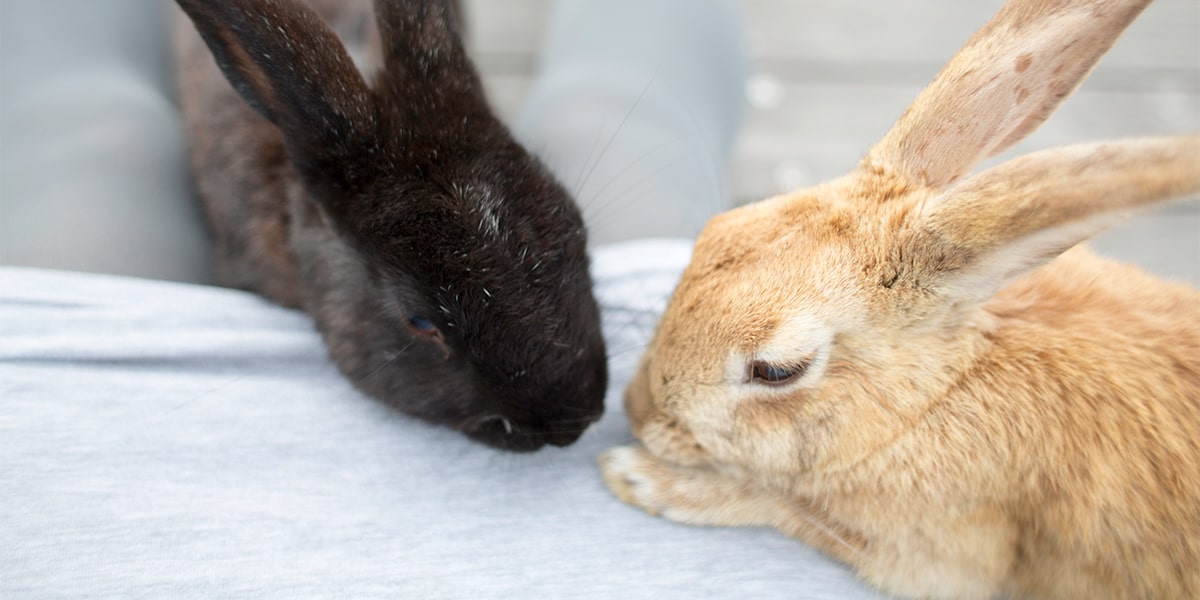
- Check your rabbits every day for any signs of illness or injury including a dirty bottom
- Clean their shelter/ enclosure for any dirty or wet bedding and remove old water
- Replenish hay, replace water and offer healthy fresh foods
- Brush them regularly to keep their coats healthy - most rabbits will groom themselves but sometimes they need a brush to keep their coats healthy. Some long-haired breeds need grooming every day, especially when they are moulting
- Most importantly…..enjoy spending time with your rabbits!
Neutering your pet
Find out how neutering can help protect your rabbit from serious illness as well as preventing unwanted litters.

